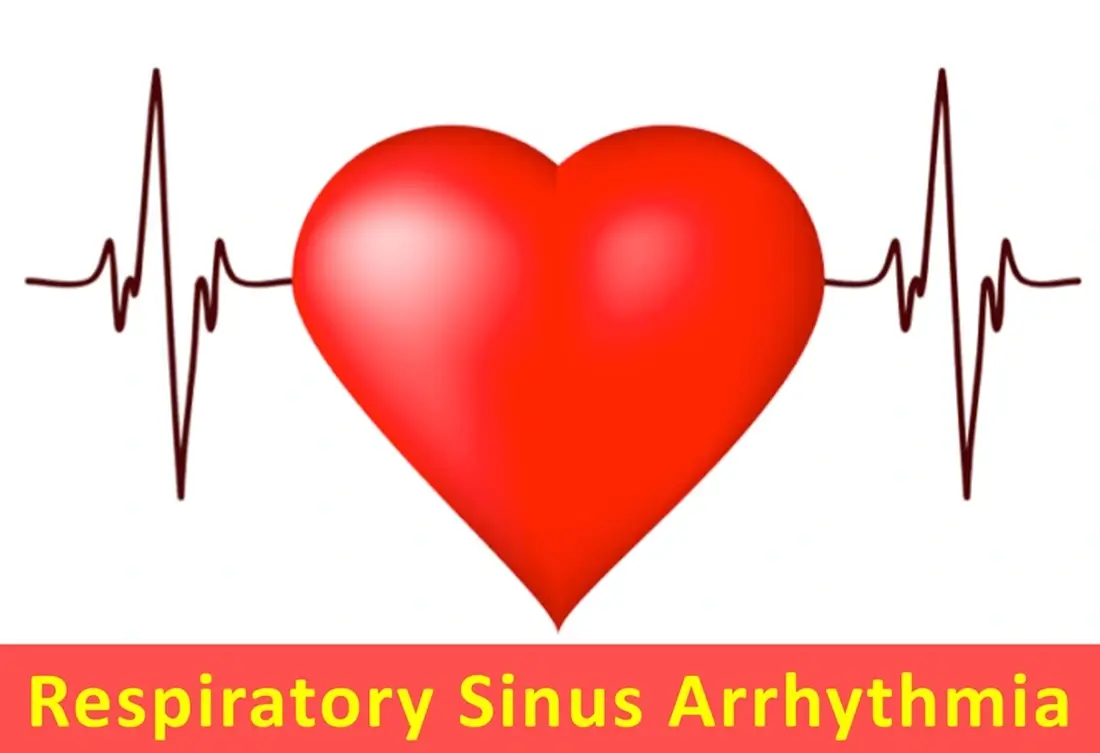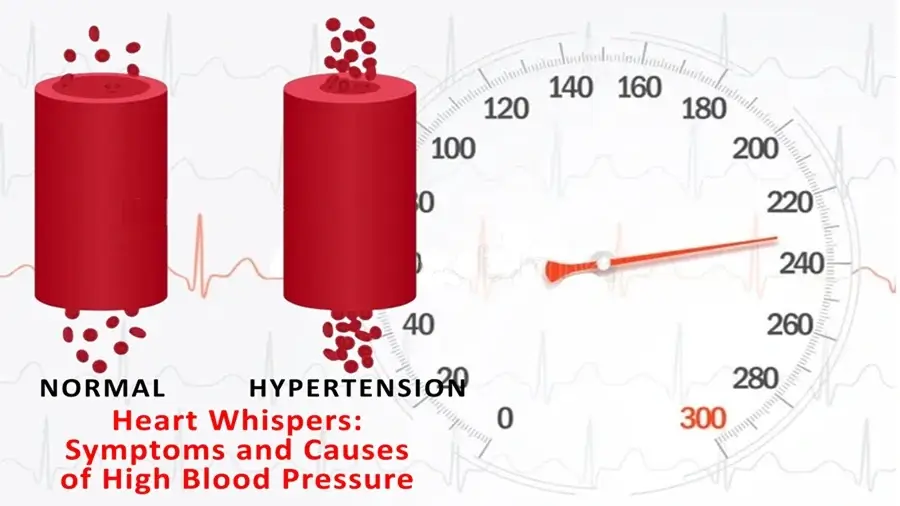
Introduction
Did you know your heart changes its beat pattern when you breathe? This is all due to a thing called “respiratory sinus arrhythmia”. This might sound like a tricky word, but don’t worry! We’ll break it down together in this blog post.
What is Respiratory Sinus Arrhythmia?
Let’s imagine our heart is a little drummer inside us. When we breathe in and out, it plays a rhythm called “respiratory sinus arrhythmia” or RSA for short. So, what does this mean? Well, when we take a big breath in, our little drummer’s heart starts to beat a bit faster. When we let that breath out, it slows down the drumming. This special rhythm, the RSA, happens every time we breathe. Isn’t it amazing how our body works?
How Does Respiratory Sinus Arrhythmia Work?
Imagine your heart and lungs are best friends playing a fun game of catch. When you take a big breath in, your lungs catch a lot of air, causing less pressure in your chest. This makes your heart—like a good friend—throw out more beats to fill in that space. When you breathe out, your lungs let go of the air, and the pressure in your chest goes back up. This lets your heart slow down and take a break. It’s like your heart and lungs are always looking out for each other, keeping your body in balance. It’s this cool back-and-forth game that creates the special rhythm we call respiratory sinus arrhythmia. Amazing, right?
Why Do We Have Respiratory Sinus Arrhythmia?
You might be wondering, “Why does my heart play this breathing beat game?” Good question! The reason is actually pretty neat. Scientists believe that this heart-lung teamwork helps our bodies save energy. Think about when you’re walking in step with a friend. It’s a lot easier to keep going, right? The same goes for your heart and lungs. When they work together in sync, they can do their job more efficiently. It’s as if our bodies have come up with a clever way to pump blood around without getting too tired! Now, isn’t that smart?
Is Respiratory Sinus Arrhythmia Normal?
It is! Having respiratory sinus arrhythmia, or RSA, is completely normal and can even be a sign of a strong and healthy heart. This amazing heart and lung game is especially prominent in kids and teenagers. While adults might not notice it as much, it’s still there, quietly playing in the background. So, if you ever wondered if your heart beating in sync with your breathing is normal, the answer is a big, resounding yes!
Remember, it’s your body’s smart way of saving energy and keeping everything running smoothly. So, next time you take a deep breath, think about the incredible game your heart and lungs are playing! Isn’t it fantastic?
Can Anything Affect Respiratory Sinus Arrhythmia?
Sure, things can influence your RSA. Let’s think about a time when you were really excited or scared. Do you remember how your heart seemed to race? That’s because your body was getting ready for action and your heart rate sped up. During these times, your RSA may be less noticeable. Just like when your friends talk louder at a party and you can’t hear the music as well. The music, like your RSA, is still there, but it’s just harder to notice.
So, feelings like stress or fear can change the way your RSA works. But don’t worry, once you calm down, your RSA gets back to its usual rhythm, just like the music at the party! Isn’t that cool?
Fun Facts About Respiratory Sinus Arrhythmia
Did you know some really interesting things about RSA? For one, you can actually keep track of RSA using a heart rate monitor. Cool, huh? It’s like having a little spy on your heart, watching the way it plays its breathing beat game. Another fun fact is that RSA is stronger when you’re chill or lying down.
Think about it like your heart and lungs taking a slow, relaxed walk in the park. But when you’re standing up or running around, it’s like your heart and lungs are playing a fast-paced game of catch. The RSA is there but not as strong, just like your heartbeat is faster but not as noticeable when you’re busy having fun. These are just a few cool things about RSA that make our bodies even more amazing!
What Have We Learned About Respiratory Sinus Arrhythmia?
We’ve journeyed through the exciting world of RSA, learning how our hearts and lungs work together to create a unique rhythm. We discovered that when we breathe in, our heart beats faster, and when we breathe out, it slows down. This rhythm is called Respiratory Sinus Arrhythmia, and it’s a sign that our heart and lungs are playing a very efficient game of catch. We’ve also learned that feelings like excitement or fear can change our RSA, but it always goes back to normal when we relax. And guess what? This game of catch between our hearts and lungs is absolutely normal! It shows our bodies are working smartly and efficiently. Isn’t that awesome?
Treatment Options
Guess what? Since our amazing Respiratory Sinus Arrhythmia, or RSA, is a normal part of how our body plays its smart energy-saving game, there’s no need for any treatment. Isn’t that great? But let’s remember one thing: if you ever feel something doesn’t feel right with your heartbeat or your breathing, don’t hesitate to tell an adult, like a parent or teacher. They can help you talk to a doctor or a nurse.
Even though RSA is a cool and normal thing, it’s always best to check with healthcare experts if you have any concerns. That’s because they’re like the super coaches of our body’s team, always ready to help keep us in the best shape. Remember, they’re there to help us understand our bodies better, so never be afraid to ask them questions!
Preventing Respiratory Sinus Arrhythmia
While you don’t need to stop Respiratory Sinus Arrhythmia from happening because it’s a natural and healthy part of how our bodies work, you can always do things to keep your heart and lungs in top shape! Think of it like giving your internal drummer and best friend, your heart and lungs, some superpower energy. This can include running around in the park, cycling, or even dancing to your favorite song to get your body moving.
Also, munching on healthy snacks like fruits, and veggies, and drinking plenty of water can help keep them strong. So, while you can’t and don’t need to prevent RSA, you can make sure your heart and lungs are as healthy as possible to play their awesome game of catch! Remember, a healthy body makes for a happy you! Isn’t that cool?
Respiratory Sinus Arrhythmia and Its Link to Heart Health
You may be wondering, “What does RSA have to do with my heart health?” Great question! RSA can be like a superhero signal for a healthy heart. When your heart plays the game of catch with your lungs, speeding up when you breathe in and slowing down when you breathe out, it’s a good sign. It means your heart is working well with the changes happening in your body.
So, when your RSA is playing in the background, it’s like your heart is giving a thumbs-up, saying everything is all good! Remember, this is one of the many ways our amazing bodies keep us healthy and strong. So, having RSA can mean you’ve got a happy and healthy heart. Isn’t that awesome?


